Residents oppose turning part of parkland in Burnaby, B.C., into organic waste facility
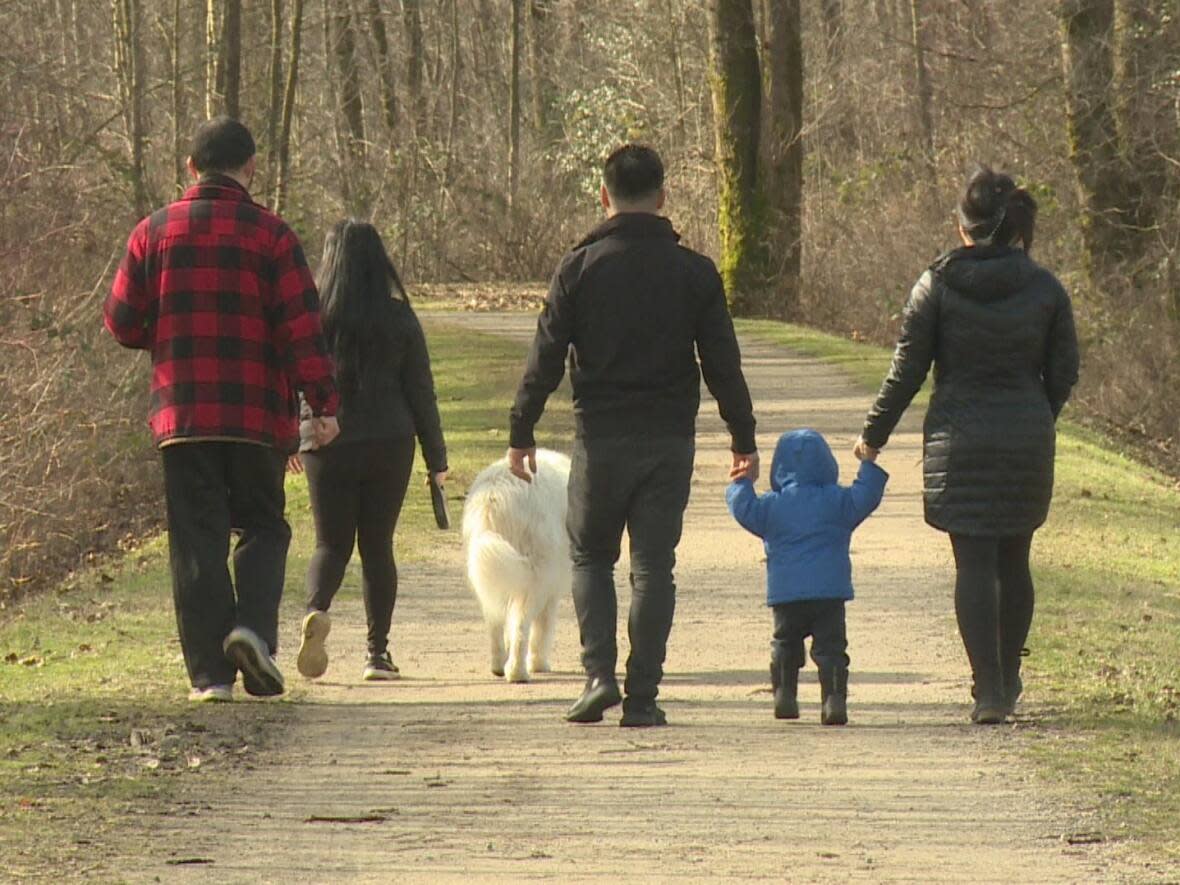
The City of Burnaby is one step closer to building a green recycling and organic waste facility (GROW) after city council voted unanimously for staff to continue working on design, cost and rezoning for the project.
However, some residents and parkgoers are opposed to the project, and worry the facility could negatively impact wildlife in the area.
The city currently collects and trucks all green waste, like food scraps and yard trimmings, to a private facility in Delta where it is then processed. The contract costs the city $3.6 million annually.
A GROW facility would keep processing in-house, a solution city council says will create jobs, reduce greenhouse gas emissions and, eventually, save the taxpayer money.
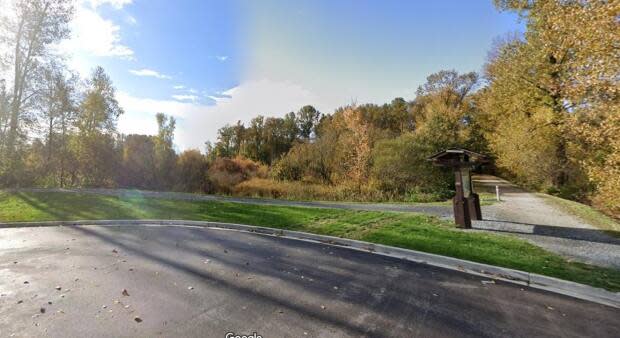
Erik Schmidt, the city's director of public works, solid waste and recycling, says their contract with the company in Delta has doubled in price since 2019, leading city staff to consider alternatives.
"We decided it would be a good time and a good opportunity for us to look at whether we could handle a facility or do something in Burnaby," said Schmidt.
"A Burnaby solution."
Generating renewable natural gas
The project is predicted to cost $180 million, but Schmidt says part of the next phase of planning will include developing partnerships with other municipalities to help lower the city's costs while helping repay the initial investment.
Once built, the facility is expected to be able to process up to 150,000 tonnes of organic waste annually, including 30,000 tonnes from the city and the rest through partnerships and contracts.
Schmidt says GROW would be equipped to create renewable natural gas by processing organic waste — enough to heat 5,000 houses a year, and that it would also cut greenhouse gas emissions by scaling back on transporting the organic waste collected from households.
City 'didn't try hard enough' to preserve park's ecosystem: resident
The facility hasn't received final approval yet. City staff intends to hold public consultations about using public park space at the Fraser Foreshore Park in South Burnaby for it, even as planning for the project has been directed to proceed.
The city predicts the 8.5-hectare (0.085-square-kilometre) facility will cover about 12 per cent of the park.
"We are talking about un-dedicating parkland … that's not ideal," said Schmidt, but adds it was the only appropriate spot in the city for the facility.
"What we've tried to do is position it as far away from the river's edge in the parkland and areas in the park that are the least destructive. That's our goal."

Residents and regular parkgoers say the city didn't try hard enough to preserve the park's unique ecosystem, and they worry the industrial facility could impact wildlife.
"They need to bring scientists here to evaluate how precious this patch is," said Dmitri Bekasov, who lives 10 minutes away. "To have this diversity within the city margins, it's absolutely precious."
Bekasov says the unique nature of the park, located along the Fraser River with wetlands and bird species like hawks, eagles and jays, might be ruined with the new facility.
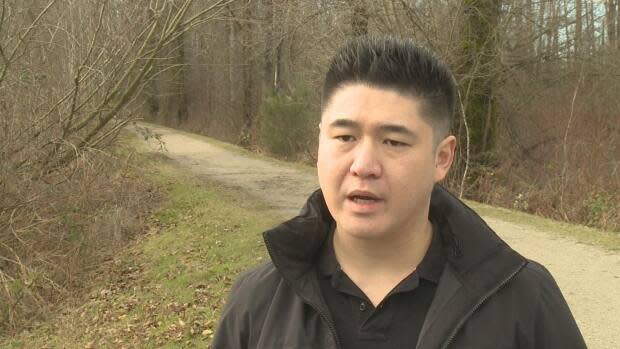
Josh Wong, a real estate agent born and raised in Burnaby, says he came to the park often as a child.
"Me and my brother, we would come here, we'd catch salamanders, frogs, snakes. We would go fishing as well," he said. "As a child, we were always taught to respect nature, to protect nature.
"I have a two-year-old … I won't be able to show him the same experiences I went through when I was a child because of this massive displacement that's happening."
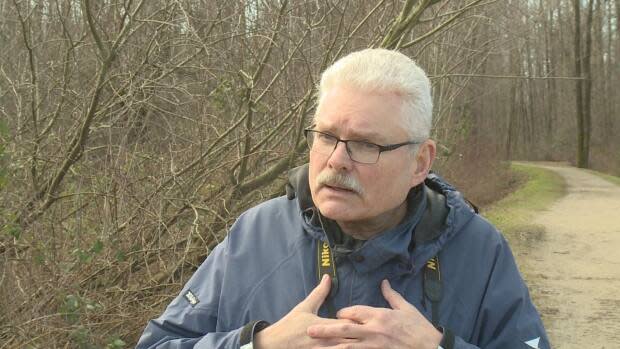
Paul Cipywnyk, an avid widlife photographer who volunteers as a stream keeper in the park, says council will support the project as it will make money for the city, and alleges residents were not consulted from day one.
"If they had done that, they would have known that people don't want this to happen," he said.
"This so-called proposal has had probably hundreds of hours of work put into it already, with no knowledge to the citizens of Burnaby, and that's just wrong."
But will it stink?
Schmidt says odour is always a big concern with processing facilities, but the GROW project is being designed to be fully enclosed and equipped with best-in-class odour management systems. He predicts odour won't be an issue.
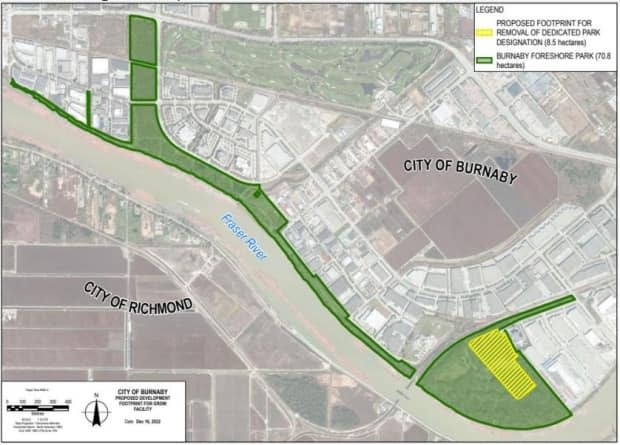
The city hopes the facility will be operational by 2026.
"But that's the last step," said Schmidt.
"There are many steps to get there."

 Yahoo Movies
Yahoo Movies 
